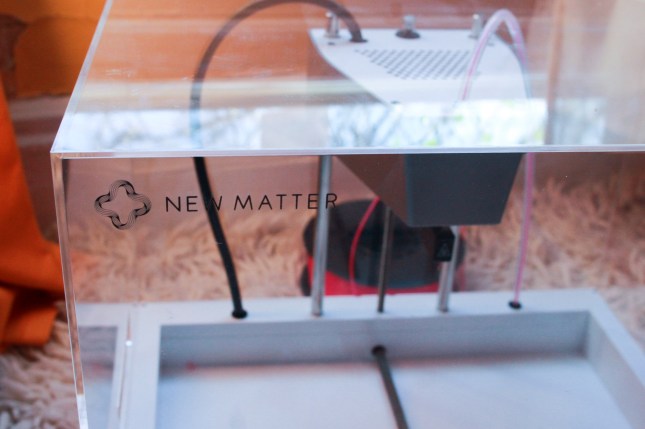
Perhaps 2014 wasn’t the ideal time to get into the 3D printing game. After years of hype, the even the biggest names have been struggling to stay afloat. Pasadena startup New Matter is joining the growing list of companies who’ve unsuccessfully made a go at it, announcing that it will be closing up shop by the end of the month.
It’s not for lacking of trying — and the company’s MOD-t printer was met with decent reviews when it launched in 2016. In his writeup, John praised the pricing ($300 or $400, depending on where you picked one up) and ease of use, though added cautiously, “you get what you pay for.”
Initially funded on Indiegogo, the company went back to the crowdfunding well last year, this time taking to Kickstarter to pay for a Model 2. The project managed to exceed its goal in five days, but New Matter still pulled the plug. The company says it ultimately wanted to go back to the drawing board.
“We have always strived to listen closely to our customers’ feedback, and given the overall reaction to the MOD-t (2nd Gen),” New Matter wrote, “we decided that the best course of action would be to discontinue the Kickstarter campaign effective November 15, 2017, rethink our next generation offering, and return with additional updates in the coming year.”
By the holidays, the company was offering up its first-gen product for $200, which now appears like another red flag. The truth is that much of the shine has worn off consumer 3D printing, and even those companies that have found success have ultimately found it difficult or impossible to compete with low cost juggernauts like XYZ, which have simply undercut the competition.
In his announcement, New Matter CEO Steve Schell acknowledges that market difficulty was a major factor in the company’s decision to cease operations, writing, “It has become clear that our aspirations to transform the industry simple don’t fit profitably into the current market dynamics in desktop 3D printing.”
While it’s ceasing operations by end of month, the company will offer some technical support through the summer. After that, however, the machines will lose some functionality, so go forth and print like every day could be your last.

Comments
Post a Comment